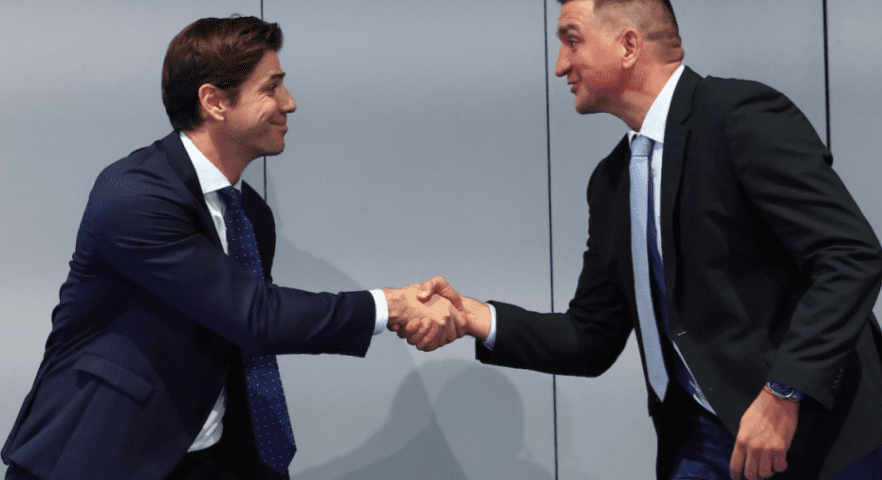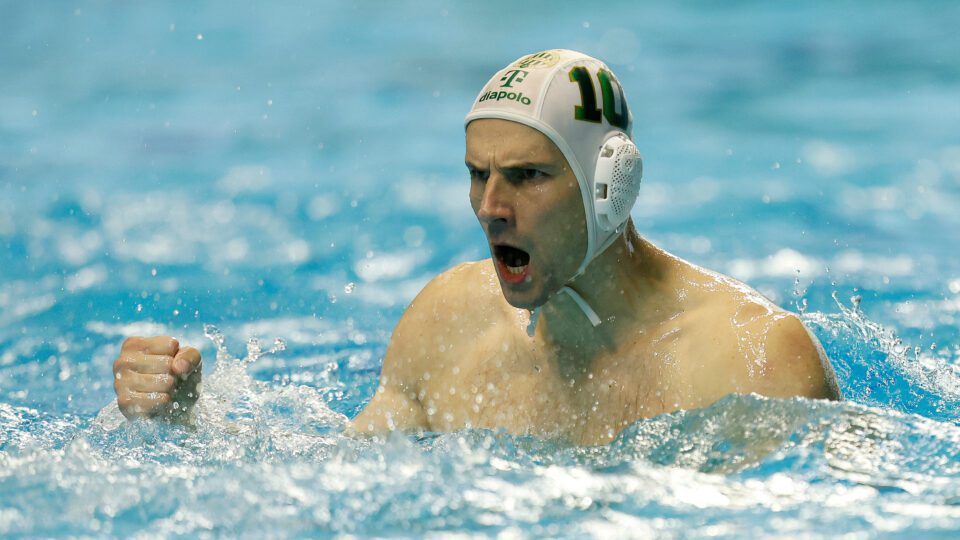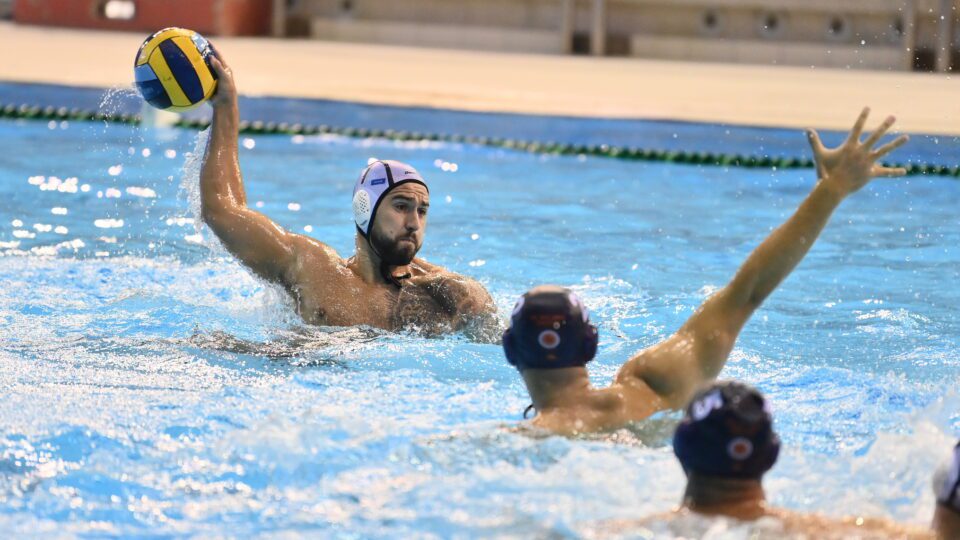The Hungarian Water Polo Federation (MVLSZ) held its election assembly, where delegates re-elected Norbert Madaras as president for another four years. The Olympic champion, who has led the sport for the past two years, presented the long-term development strategy for Hungarian water polo, which outlines the future of the sport until 2032. The assembly unanimously supported the strategy.
The meeting began with Norbert Madaras’ presidential report, in which he summarized the achievements of the past two years since his election.
“I had a feeling this would be a tough task, and in certain ways, it has been the hardest challenge of my life so far. But as you can see, I’m smiling because I love challenges, and I believe a lot of good things have happened. We have achieved many positives since November 2022,” said Norbert Madaras at the start of his presentation.
The president recalled that following his election, they managed to stabilize the financial situation of the federation. Regarding results in the pool, he reminded everyone of the outstanding performances of the national teams at the World Championships: the men’s team won gold in 2023, and the women’s team won silver in 2024. However, he added that there remains a sense of unfinished business regarding Olympic performances. Norbert Madaras also pointed out that the youth teams achieved an unprecedented streak, being the only nation in the world to make it into the top four in all six age-group World and European Championships in both 2023 and 2024. In fact, last year the young teams won four gold medals, an achievement unrivaled anywhere. This year, the men’s U18 team became world champions, and five teams took home medals, just like the year before.
Looking to the future, the president outlined several major plans. The MVLSZ Medical and Methodological Center has already started operating in Dagály, and the installation of cameras is underway, which will soon allow all matches under the MVLSZ to be streamed on the federation’s dedicated video platform. Preparations are also in full swing for the development of educational materials, including books and training videos, to enhance the training and development of young players more effectively than ever before. “In addition, we aim to be pioneers in the wide application of artificial intelligence-based performance and game analysis systems,” Norbert Madaras added, outlining another significant prospect.
This led into the presentation of the MVLSZ’s long-term development strategy for 2024-2032, which rests on four pillars: sustainability, youth development, improving performance, and increasing the popularity of water polo. As Madaras put it when introducing the strategy: “We must achieve systemic development in sports expertise, generalize health and performance diagnostics, increase the number of sports professionals, and continuously improve their quality of knowledge. This must be paired with organizational and infrastructural developments, with one of the foundations being the continuous adaptation of the financial model.”
The president emphasized that even more important than these is the need to expand and deepen the sport’s base. “Our primary goal is to attract even more young people to water polo, and for that, maintaining and even increasing its current popularity is essential. We aim to achieve all of this within the next two Olympic cycles, and I am convinced that the foundations remain solid as we move forward – and yes, we will once again find the path to victory.”
The delegates unanimously approved both the president’s report and the strategy. Following this, the president and the executive committee were elected. Norbert Madaras received unanimous support for a full Olympic cycle as president. György Beck remains co-president of the organization, while Istvan Gergely, the league’s nominee, and Tamas Molnar, the head of the World Aquatics Water Polo Committee, were elected as vice presidents. The executive committee will include Peter Biros and Sandor Toth representing the league, István Kovacs from the Professional Body, Gergely Lukacs from the Regional League, Bulcsu Szekely from the Youth and Sports Committee, and Tamas Farag0, who holds the title of National Athlete. Additionally, the delegates placed their trust in Tamás Dala, Krisztina Zantleitner, Zoltan Nyiri, Peter Lovas, and Gabor Kis.
Regarding other positions, eva Hegedus was once again elected Honorary President of the MVLSZ, and Sándor Kallai will lead the Supervisory Board as its president, with Robert Auth and Viktoria Nagy as members.






